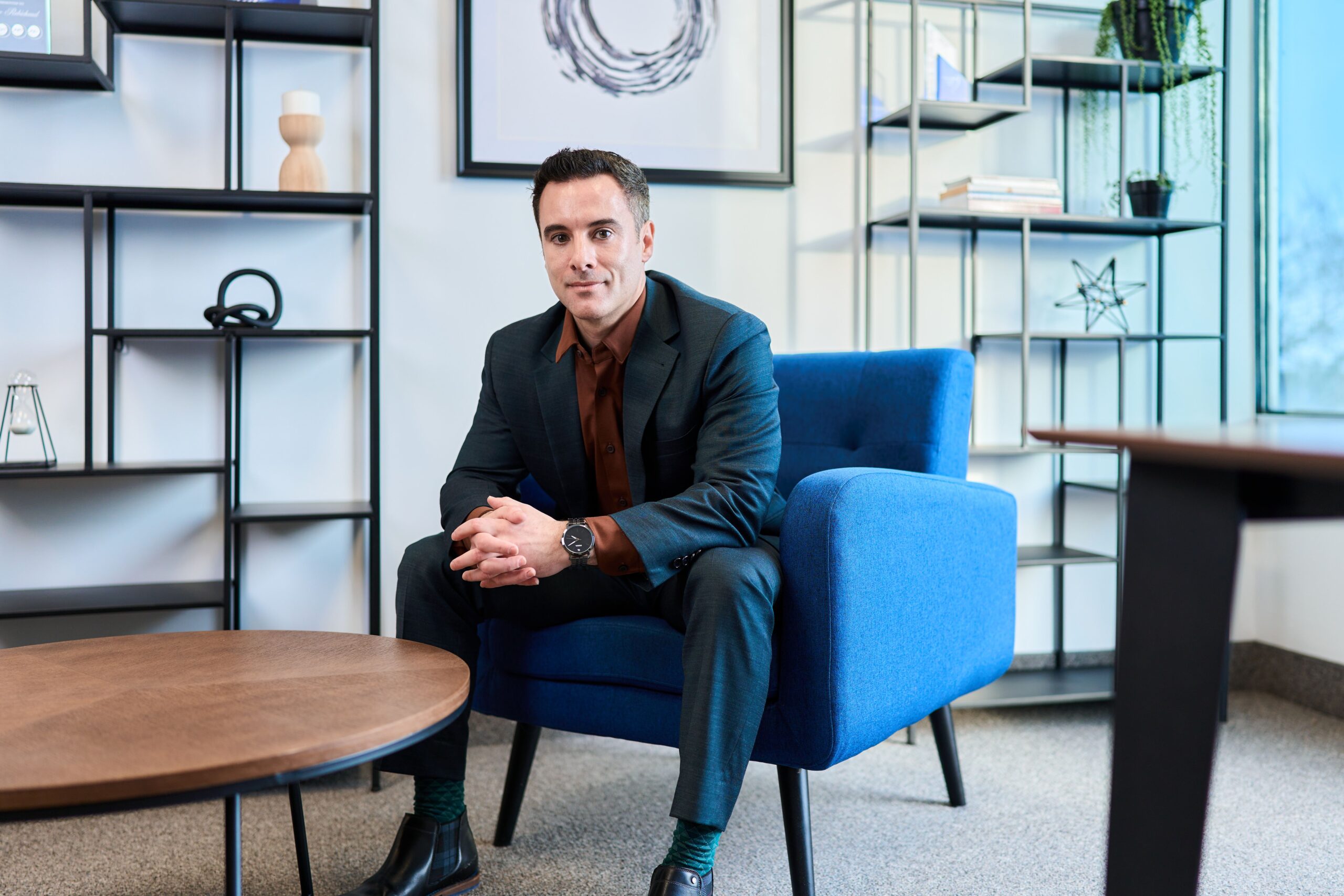Serge Robichaud studied at the University of Moncton before entering the workforce as a financial planning professional, a position he has now held for more than twenty years. Throughout his career, he has held multiple positions of responsibility at several of Canada’s premier financial institutions. These days, he offers counsel to a roster of diverse clients regarding various financial and insurance products, always mindful that his recommendations will affect their goals and dreams for the future.
Q: Why did you decide to get into financial planning in the first place?
SERGE ROBICHAUD: I’ve always had an innate desire to help people. Throughout my life, this has manifested itself in different ways, but sometime between graduating high school and beginning my studies at the University of Moncton, it caused me to choose financial planning as a profession. I knew that if I applied myself properly, I could spend my career helping people achieve their financial goals, which when you think about it, is tantamount to helping secure their life goals. It helps them to buy property, ensures their children have adequate money put aside for their education, and secures the funds needed for a comfortable retirement situation. The advice I give to my clients enables all these things to happen, and that thought gives me great satisfaction.
Q: Is there a specific strategy you use to retain your clients?
SERGE ROBICHAUD: There’s no specific strategy outside of tailoring each client’s recommendations to meet their individual needs, and making sure to engage with them on a human level. Client retention is all about showing them that I care about them, their families, and their goals in life. In most cases, the best way to do that is to have in-depth conversations with them to show my interest. That can be in person, over the phone, or via Zoom or Microsoft Teams. So, in short, I make sure to check in on them, see how they’re doing, and answer any questions they may have about their portfolios or insurance policies.
Q: What is one habit that makes you more productive at work?
SERGE ROBICHAUD: I always make sure to be on top of any communications that come my way. When a client or colleague leaves me a voicemail or sends me a text message, I always return it as soon as I find it. If I have the answer they’re seeking, I’ll tell them. If not, I’ll say that I’m looking into it. I’ve cultivated this habit because it accomplishes two major things: First, it lets the asker know that I care about their inquiry, which reinforces the value I put on our relationship. Second, by taking care of the matter immediately, I’m removing the possibility that it will slip my mind later.
Q: You’re in a fairly demanding industry. How do you balance your work and your personal life?
SERGE ROBICHAUD: While it’s true the financial planning industry is a demanding one, and hence, takes up a great deal of my time and attention, I always make sure to take care of myself when it comes to my health. That means eating nutritious foods and getting ample sleep each night. I also make sure to exercise every single day, whether that’s working out at the gym or playing recreational sports. Keeping my body fit and in tip-top shape enables me to think more clearly, and ultimately perform better at my job.
Q: Do you have any advice that you would like to impart to any readers aspiring to become financial planning professionals?
SERGE ROBICHAUD: I do. One of the most important things to do if you want to become a financial planning professional is to keep informed about the latest trends and developments in the field. Ours is an ever-changing industry and one that is inextricably linked with outside forces. For example, suppose people buy financial products rooted in the stock market. In that case, their investments are tied to any number of disparate factors—everything from interest rate announcements to technological advancements to geopolitical developments. You sort of have to keep an eye on everything in this profession. Beyond that, the best advice I can give is this: always keep the best interests of your clients at the forefront of your mind. As I alluded to earlier, it’s not just their money you’re responsible for, it’s also their overall future.







